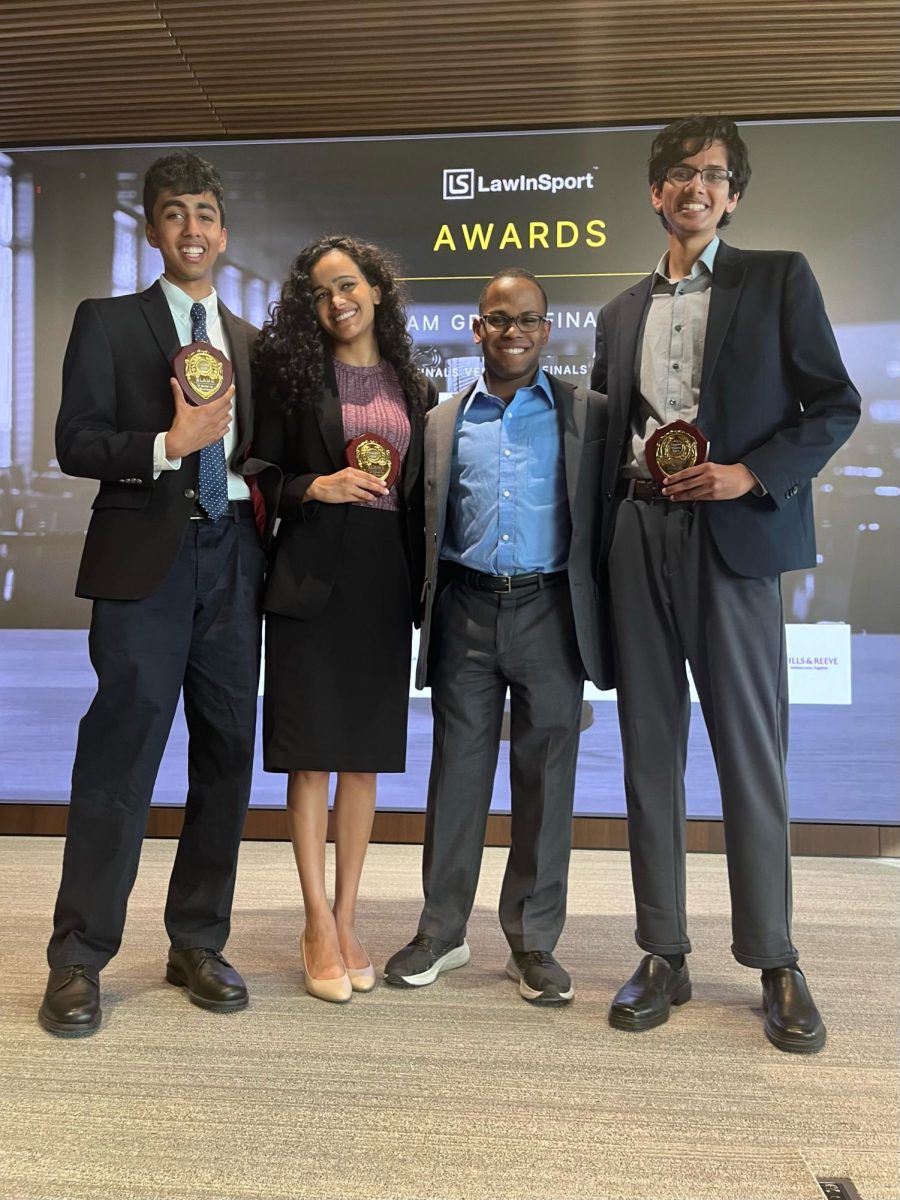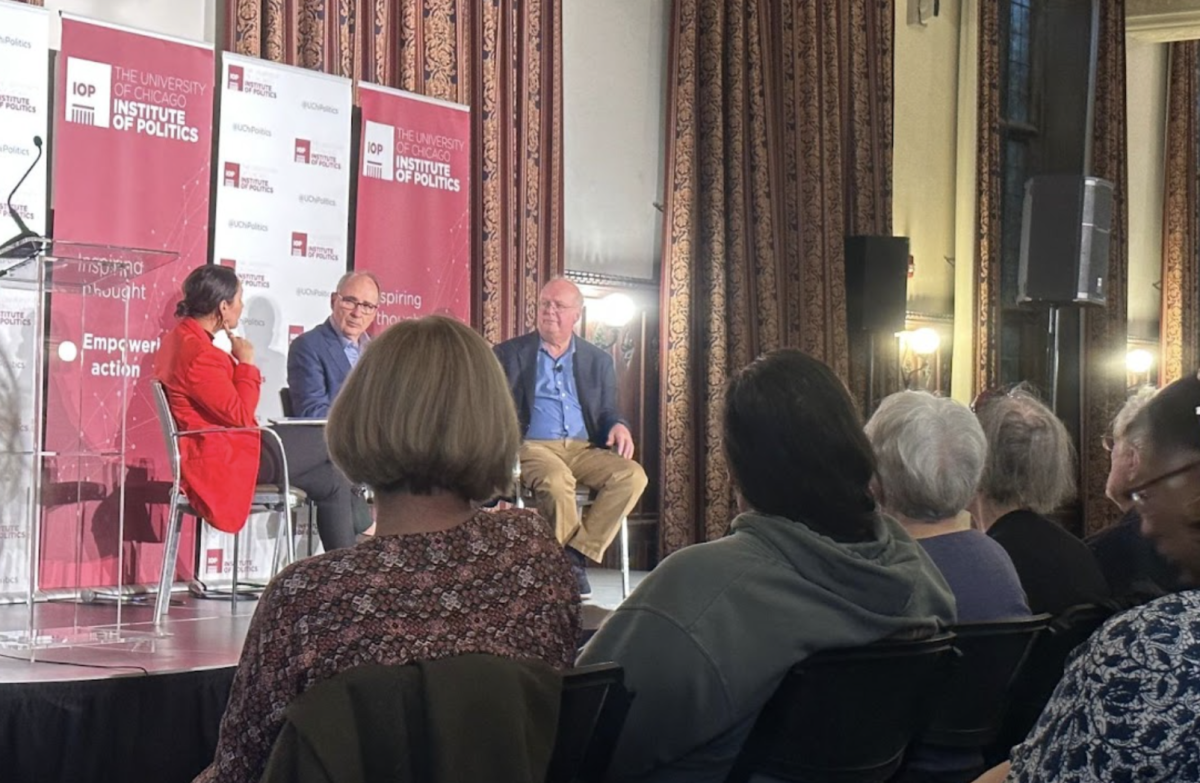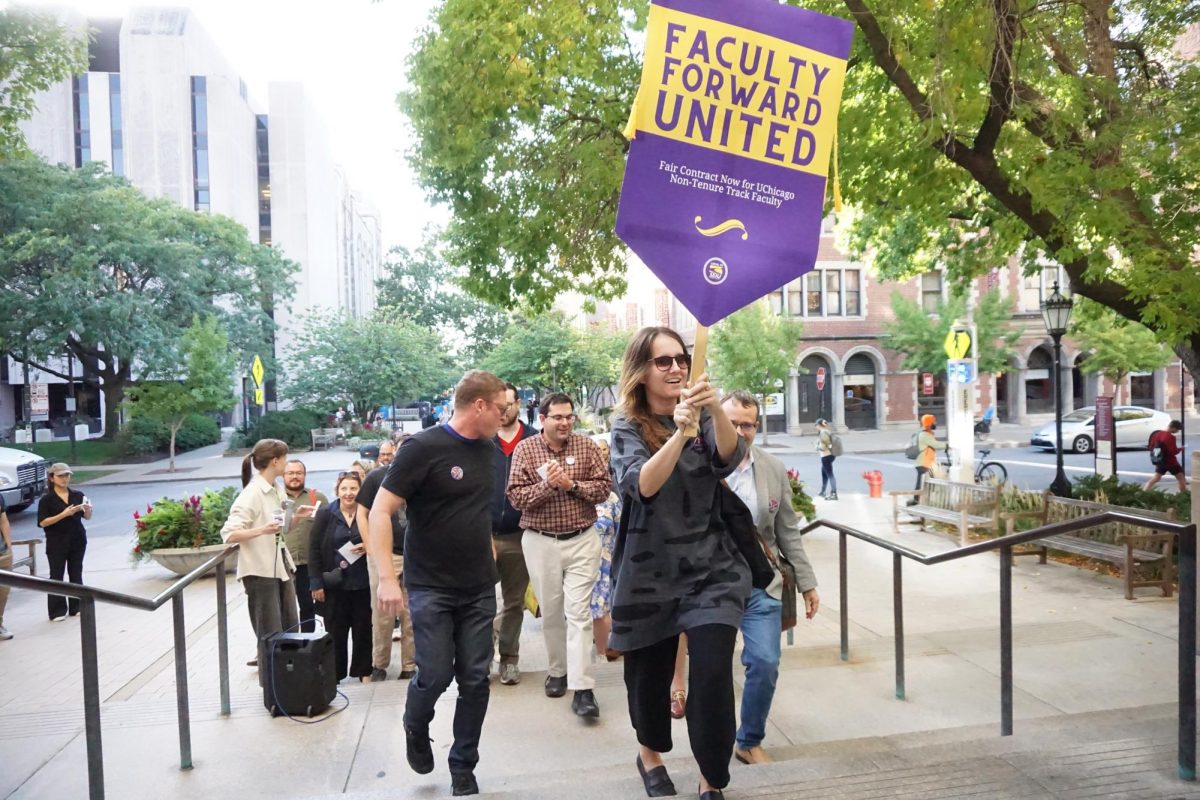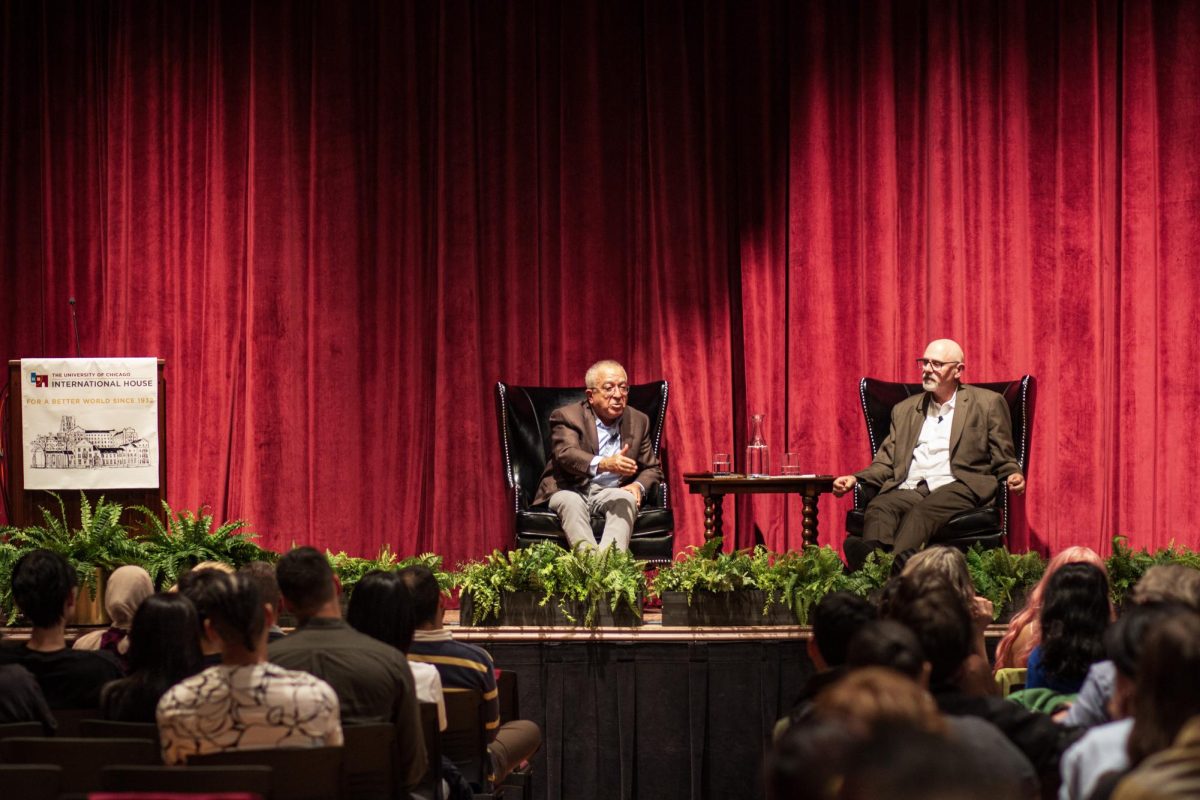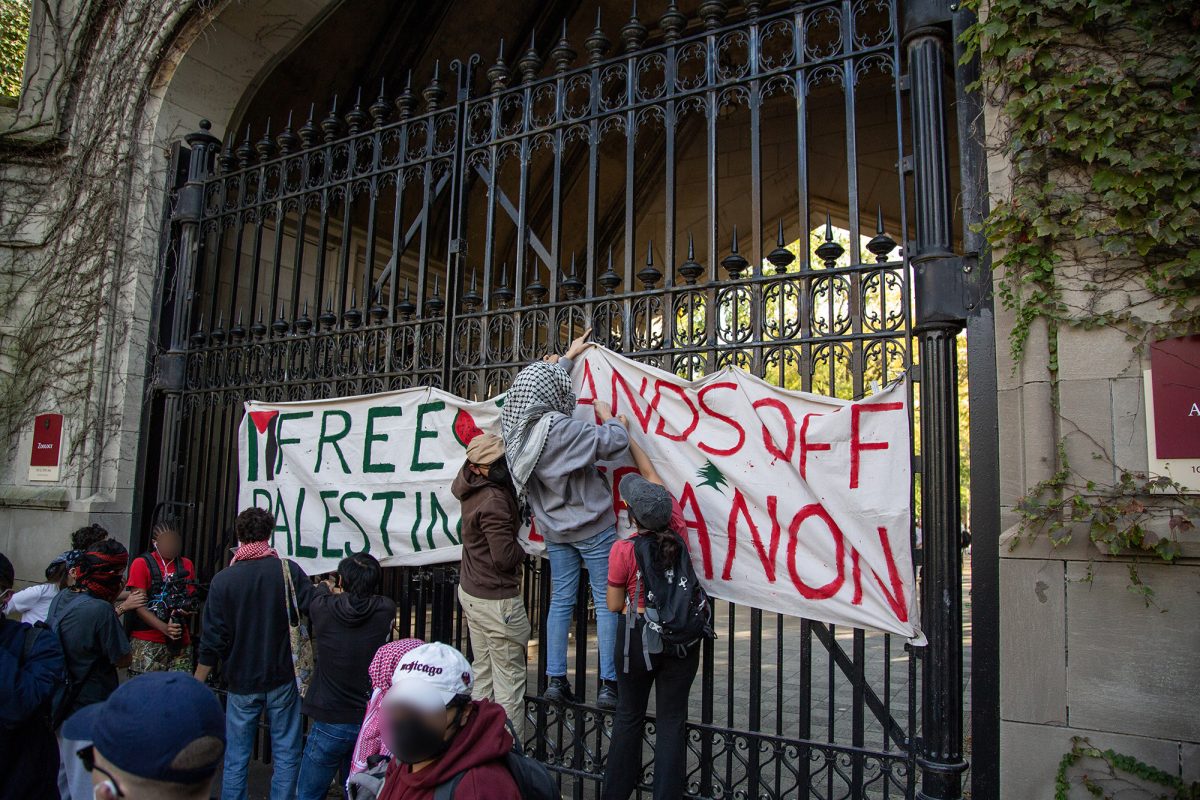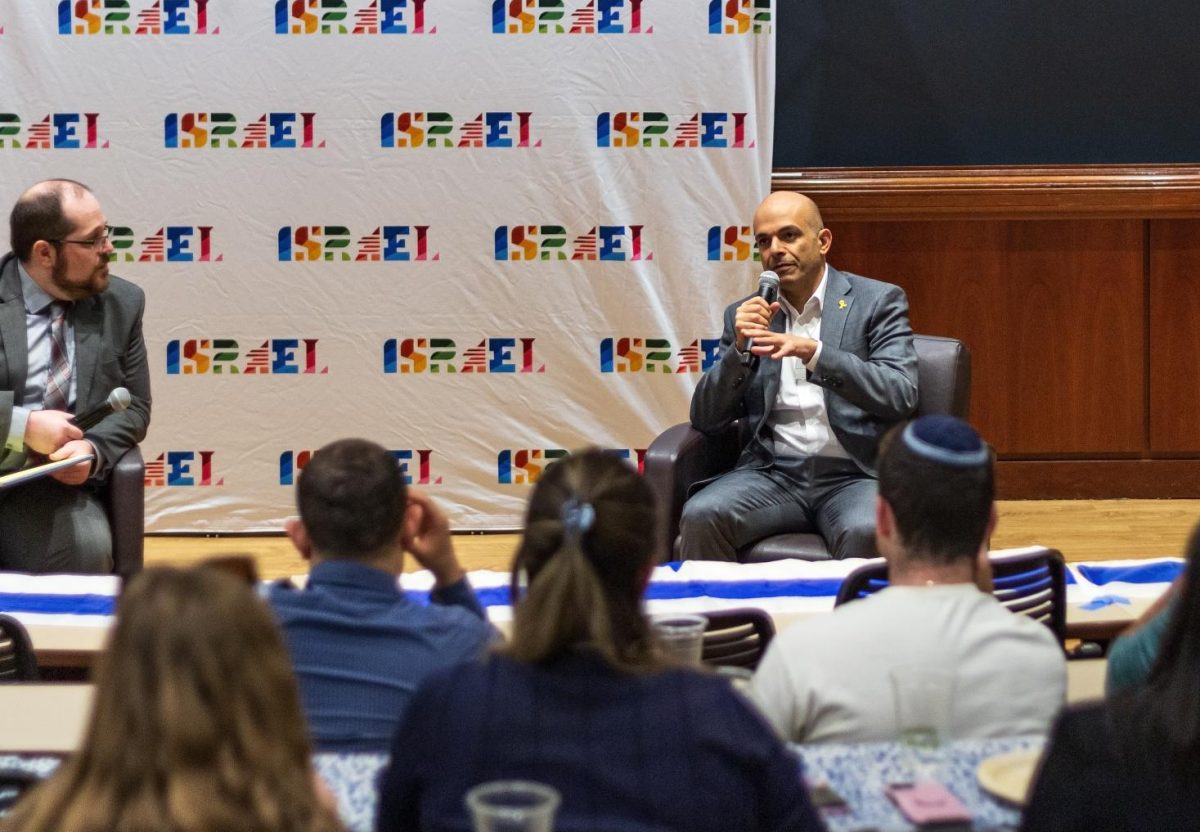President Harry Truman never went to college, but the scholarship established in his name will give third-years in the College Andrew Hammond and Nina Meigs $30,000 each to attend graduate school.
Like other Truman Scholars, they expect to dedicate themselves to public service and were selected on the basis of their academic record and history of community service.
“These are among the most distinguished scholarships a student can win for graduate school,” said John Boyer, dean of the College, at a surprise reception for the recipients Monday afternoon in Harper.
“After reading your applications, I thought you probably deserved to win these,” he joked. Boyer was at the reception with several other top College and University officials, as well as members of the press and a bottle of champagne.
Hammond, a former Viewpoints Editor of the Maroon and co-executive director of the U of C chapter of the American Civil Liberties Union, said he hopes to reinvigorate the debate on child poverty. A political science concentrator, he will use his scholarship to pursue a joint JD/MPP, and he eventually wants to become a politician or political aide.
“A society that talks about opportunity for all its citizens can’t let 12 million kids grow up in poverty,” he said.
Hammond has worked on several political campaigns, including Forrest Claypool’s recent bid for the Cook County Board president. In 2004, Hammond volunteered for Barack Obama’s campaign as a volunteer manager. Unable to persuade his parents to let him leave school, he ended up working part-time as a policy intern.
Last summer, Hammond interned at the National Center for Children in Poverty in New York and researched ways to increase funding for pre-K programs.
“Andrew’s the most sincere and committed applicant I’ve seen,” said Rovana Popoff, College adviser and coordinator of the College nominee selection process.
Meigs, the daughter of a diplomat, was born in Virginia and raised in Cyprus, Senegal, Washington, D.C., and Switzerland. A public policy concentrator, she plans to use her scholarship to pursue an MPP or MPA, possibly at Harvard University or Columbia University.
She hopes to promote development in Africa by improving local governments.
Meigs has worked 10 to 20 hours per week at the Midwest Immigrant and Human Rights Center over the past year. Fluent in French and Spanish, she interviews all incoming Francophones seeking asylum.
Meigs said she is humbled by her work at the center. “My decision, yes or no, will completely change the rest of their lives.”
“She’s one of the most dedicated interns I’ve ever seen—she has a genuine interest in the work we’re doing,” said Keren Zwick, the asylum project coordinator at the center.
In the summer of 2004, Meigs worked for a think tank in the Dominican Republic and reviewed a proposal submitted by the nation’s first lady calling for the construction of a large new science museum. In a country where “the power was out 18 hours a day,” Meigs said, she convinced the first lady to spend the country’s scarce resources on a literacy program instead of on a costly tourist attraction.
“I came back and realized this was my calling,” Meigs said. “It’s our duty to give back.”
Seventy-five winners were selected this year from 598 scholarship finalists nominated by 311 colleges and universities. Typically, one winner is selected from each state, and several are selected on an at-large basis. Third-year in the College Miranda Nelson was a finalist for the scholarship.
This is the second year in a row and the second time ever that two U of C students have won the award. Ten U of C students have won the scholarship since its inception in 1977, including five winners in the last three years.
The scholarship is renowned for its difficult application process, which involves almost 10 pages of essays and an intentionally confrontational interview for finalists.
Scholarship recipients are required to work for educational institutions, nonprofit organizations, or the government for at least three of their first seven years after graduate school.



